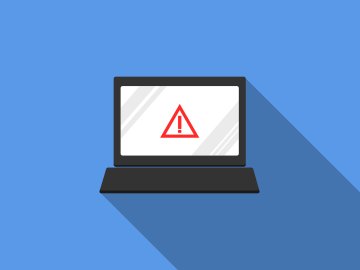Scamming is nothing new, and unfortunately, thousands of us fall victim to it every single day; with the National Cyber Security Centre receiving 10 million reports, as of February 2022. While we may feel prepared for some of the more obvious attempts at exploiting us, some scammers can appear more genuine and catch us off guard. Statistics have shown that there was 4.6 million fraud offences for the year ending March 2021. With scammers always adapting to the modern landscape, it can be difficult for us to determine what is genuine and what is fraud.
Take a look below at some of our considerations around how to spot a scam.
Something doesn’t seem right – how scammers target people and businesses
A scam can appear on your device at any given time. They often arrive as a text message, email or phone call. Sometimes scams can also appear on social media. No matter the source, scams attempt to engage you by clicking on links or encouraging you to give out personal details or account information. A lot of the time, they try to create a scenario where you need to act fast in order to prevent something bad from happening. This sense of urgency can panic us as we feel we may get fined or suffer consequences with the law if we do not respond.
Scammers can take a much more planned approach when it comes to scamming businesses. A lot of the time, business details can be widely publicised, making it easy for scammers to do their research and craft an attack.. Information that could be readily available may include the names of senior leaders, staff member’s email addresses or a general idea of what projects or events may be happening at the time (seen through social media or articles etc). With this information, scammers can pretend to take role of a CEO or trusted senior leader and attempt to obtain information or money from staff members. In 2020, CEO fraud attempts were seen 17,607 times
Protect yourself from scams - Key considerations
The main things to remember when trying to protect yourself or your business from a scam, is to be highly critical of everything that appears on your device. You should never feel pressured to act quickly when a message appears or when you receive a phone call; time is always on your side. Do the necessary checks before engaging with these forms of communication.
Some of the ways to check if it’s a scam can include:
- The name, number or contact details – do not assume you have received a message from the person they say they are. Make sure all contact details are recognised and familiar across the board. If in any doubt, make contact through a known channel and check with the person separately. It does not cost anything to check!
- Urgency – as we have said before, urgency is a key factor in executing a scam. Never feel pressured to engage without taking the time to critically think about what is being asked. Don’t give out information or feel as though you will suffer consequences.
- ‘Click here’ – many scams will ask you to click on unfamiliar links and input your personal details. Do not engage and just delete the message.
- Spelling and grammar – It may seem extremely basic but scammers are often not that great with spelling and grammar. Read through the message thoroughly and check the tone and approach. If it’s riddled with mistakes and badly written, it’s probably not genuine.
What to do if you have been scammed
If something has already happened and you feel information or money has been compromised, make sure you take the following steps into consideration:
- Change passwords and log ins – try and prevent any further breach to your business by addressing security first and foremost
- Contact the bank – if details have been compromised, explain the situation to the bank and put a stop on any further payments
- Collect information – ensure that you have recorded as much information as you can around what happened so it can be reported effectively
- Report – contact the police or Action Fraud and try and give them as much information as possible about what happened.
- Support – make sure there is a good support network for the victim of the scam. Make sure you highlight support helplines such as the Samaritans
Cyber-security training
If you need further advice or training around how to protect your business from common online attacks, you can get appropriate cyber-security training here. Human error is involved in 90% of all successful security breaches. Reduce the risk of this happening to you with Cyber Awareness Training and email protection from Edtesa and Mimecast. Knowing how to prevent and respond to issues such as scams, can reduce the likelihood of a successful attack and lessen the impact even if the attack is successful.






